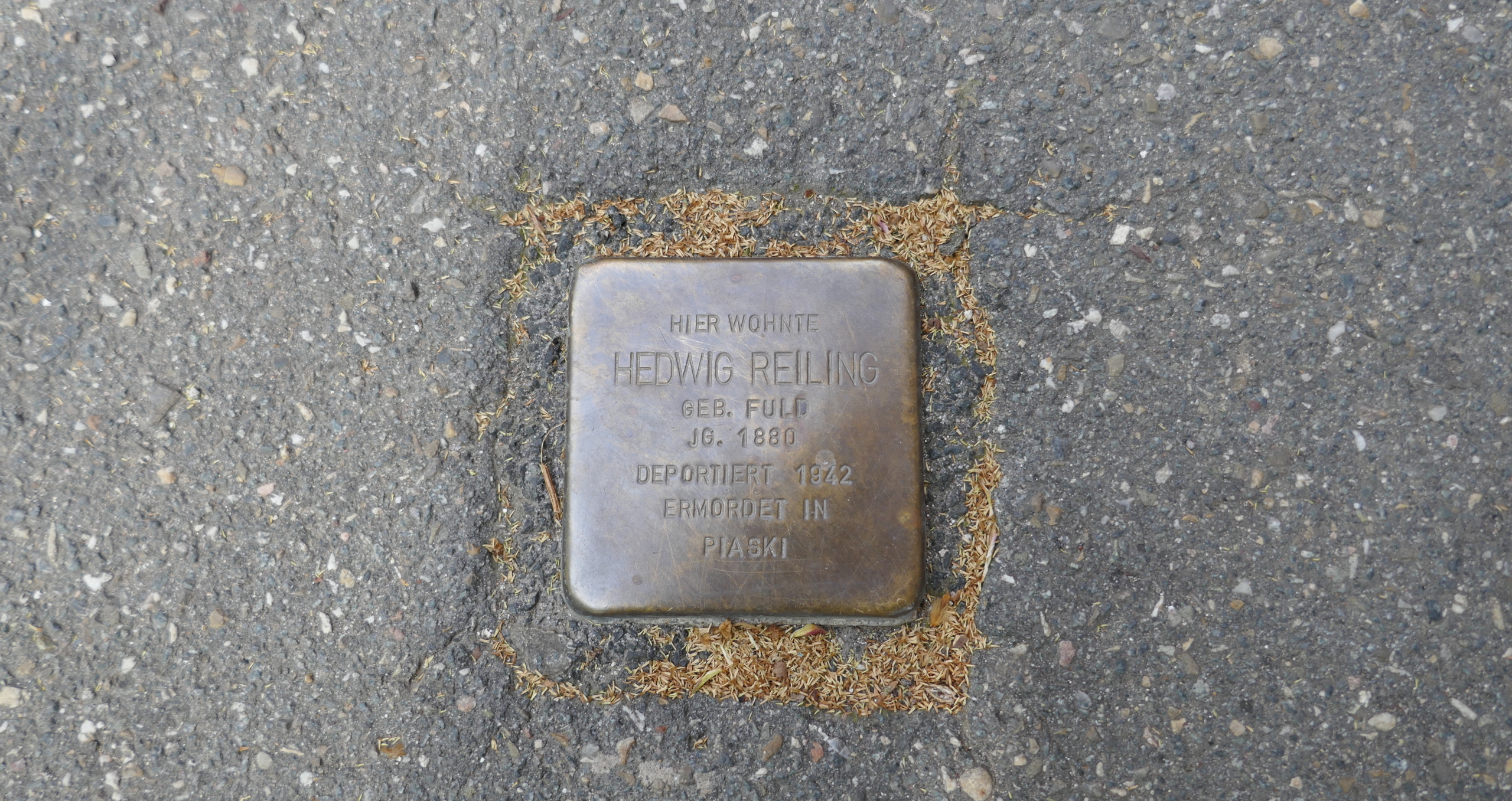Stumbling Stones
Stumbling stones reminded me of a past I would rather forget. I must not.
As we strolled the cobblestone streets of Mainz, Germany, the guide pointed out a small brass memorial. I took a photo of the Stolpersteine with the name of someone I would never meet. That small marker brought a deep sadness for the millions of victims of the Nazi persecution.
Our visit to Nuremberg, Germany had already left an indelible mark on my soul. Standing in the square where so much hatred spewed forth brought to life a time we must never forget or repeat.
“Those who cannot remember the past are condemned to repeat it.”
~ George Santayana
Gunter Demnig, a German artist, created the Stolpersteine project in 1992 to commemorate the millions lost during this dark time in history. Since then, more than 75,000 memorial blocks in over 1,200 cities lay across Europe and Russia. Each stone laid in the exact last known residence or place of work represents a life lost to the Nazi terror.
What will we remember about 2020?
The last several months cannot compare to the Holocaust. But there are lessons we can learn from the past and the history we live today.
Over the past weeks, stories of cleaner air, hearing songbirds, reconnecting with loved ones and neighbors flooded the news and social media channels. Stories of hope and connection.
Other stories grabbed our attention. Lives lost, loved ones isolated in nursing homes, workers without jobs, food, and health care tore at our hearts. What do we do about those memories?
We must do something different in the future. You and I can make a difference from our own home and in our communities. Every groundswell of effort to improve begins with one small decision, one step toward change.
Rather than feeling helpless and shrugging off the problem onto “them,” remember that we are them. You and I have a choice to make on whether we will continue the strategies to curtail a deadly virus. Or will we choose to toss that bad memory away and move on as if nothing ever happened?
Placing blame and pointing fingers does nothing to ensure that the world can face another onslaught of a novel virus. Humanity, all of us, share responsibility in large and small ways.
What can we do?
I will never claim to have all the answers or even one. But I can make some changes in how I live and move on this planet that belongs to us—humans and non-humans. Here are a few thoughts for you to consider.
- Compost food waste to create rich organic soil. Then plant vegetables in a garden or patio pot. Create a cycle of life of your own, and healthy. Create a cycle of life of your own, and healthy.
- Use less plastic. You can find different types of reusable bags for shopping. Store leftovers in reusable glass containers. Slow down the carbon footprint. Slow down the carbon footprint.
- Drive less. We live ten miles from the nearest shopping. I plan my excursions to cover as much ground as possible in a single trip. If you live where you can walk, you gain another star for physical exercise.
- Ask more questions of political and corporate leaders. Too often, we abdicate our political rights by remaining silent. Listen to what is actually said and look for verification in diverse news streams and current research.
- Be kind. Treat each other as unique and worthy individuals. Hatred tears us apart and divides us into us and them. Live with civility.
No matter what you believe, respecting our differences begins with each of us. I will leave you with this definition of civility from the Institute for Civility in Government cited in Braving the Wilderness by Brené Brown.
“Civility is claiming and caring for one’s identity, needs, and beliefs without degrading someone else’s in the process . . . [Civility] is about disagreeing without disrespect, seeking common ground as a starting point for dialogue about differences, listening past one’s preconceptions, and teaching others to do the same. Civility is the hard work of staying present even with those with whom we have deep-rooted and fierce disagreements. It is political in the sense that it is a necessary prerequisite for civic action. But it is political, too, in the sense that it is about negotiating interpersonal power such that everyone’s voice is heard, and nobody is ignored.”
And always—
Be kind. Be brave. Be you.
Photo: “Stumbling Stone in Mainz, Germany” by Kathryn LeRoy



Leave A Comment